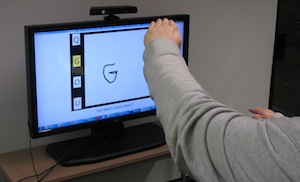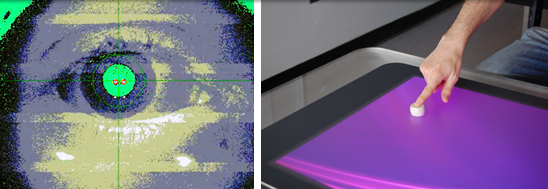Per Ola Kristensson will give two presentations at IUI 2012: 17th ACM International Conference on Intelligent User Interfaces in Lisbon, Portugal on February 14-17, 2012.
The first presentation is on Wednesday and is entitled “Performance comparisons of phrase sets and presentation styles for text entry evaluations”. This paper describes how we used crowdsourcing to empirically compare five different publicly-available phrase sets in two large-scale text entry experiments. We also investigated the impact of asking participants to memorise phrases before writing them versus allowing participants to see the phrase during text entry. This paper is co-authored with Keith Vertanen, an Assistant Professor of Computer Science at Montana Tech in USA.
The second presentation is on Thursday and is entitled “Continuous recognition of one-handed and two-handed gestures using 3D full-body motion tracking sensors”. This paper is co-authored with SACHI members Thomas Nicholson and Aaron Quigley. In this paper we present a new bimanual gesture interface for the Kinect. Among other things, our evaluation shows that the system recognises one-handed and two-handed gestures with an accuracy of 92.7%–96.2%.
Per Ola will also introduce the keynote speaker Chris Bishop from Microsoft Research Cambridge on Thursday. Chris will talk about “…the crucial role played by machine learning in the Kinect 3D full-body motion sensor, which has recently become the fastest-selling consumer electronics device in history.”
Per Ola is a Workshop Co-Chair for IUI 2012 together with Andreas Butz, a Professor of Computer Science at the University of Munich in Germany.









